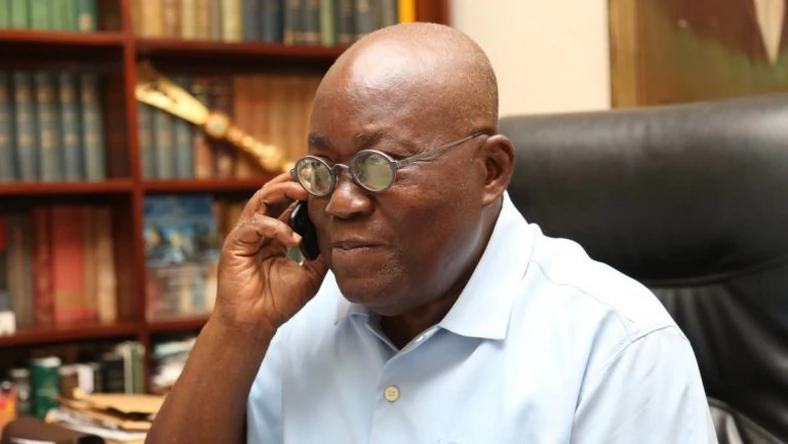Ghana’s government has announced plans to seek support from the International Monetary Fund (IMF) as it continues to struggle with worsening economic conditions.
The West African nation’s economy continues to plummet as it struggles to improve the living standards of citizens.
The country’s public debt stock now stands at GH¢341.8 billion ($45.5 billion) with a corresponding debt to GDP ratio of more than 77% as of September ending 2021.
Analysts say that debt to GDP ratio has already crossed the 81% mark in 2022 with the government yet to find a way around without going to the International Monetary Fund for a bailout.
Revenue generation has been a major challenge for the Ghanaian government which continues to borrow significantly to service its debts.
Ghana has spent on average 147 billion Ghana cedis ($19.6 billion) just to service interest payments on previous borrowings.
In a statement on Friday, the government said the country’s President, Nana Akufo-Addo had directed the finance minister to engage the IMF for a support program.
It read that “The President of the Republic, Nana Addo-Dankwa Akufo-Addo, has authorised Finance Minister, Ken Ofori-Atta, to commence formal engagements with the International Monetary Fund (IMF), inviting the Fund to support an economic programme put together by the Government of Ghana”.
According to the government this decision “follows a telephone conversation between the President and the IMF Managing Director, Krisalina Georgivia, conveying Ghana’s decision to engage the Fund.”
Ghana goes back to the IMF amid economic distress! #Ghana #IMF pic.twitter.com/Dk4wevmbQy
— Isaac Kaledzi (@IsaacKaledzi) July 1, 2022
Ghana’s finance minister had on several occasion said the country won’t head back to the IMF after ending a similar program four years ago.
But the government statement said the cabinet at a meeting on June 30th, 2022, supported government’s decision to pursue an economic programme from the Fund.
“We are not going to the IMF, whatever we do, we are not” – Ken Ofori Atta speaking in a town hall meeting on the e-levy in Tamale in February this year.
What changed between the time the finance Minister said this and now ?pic.twitter.com/y27876c613
— Kafui Dey (@KafuiDey) July 1, 2022
With rating agencies already downgrading Ghana’s economy making it difficult for the government to borrow more, the government pushed through an electronic levy that covered mobile money transactions.
That policy received a lot of opposition from Ghanaians and led to a reduced patronage of electronic payment systems.
In recent months, Ghanaians have complained about the high cost of living especially when it comes to fuel prices.
The government’s decision to head to the IMF for some analysts meant it failed with its domestic measures to revive the economy – a move that is coming too late.
Source: Africafeeds.com


